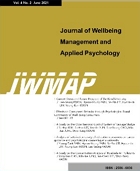 E-ISSN : 2586-6036
E-ISSN : 2586-6036

Abstract
Purpose: It is of great significance to look at the relationship between the mother’s working condition and the child’s health status because the mother’s influence on their child is very significant. In this context, this research explores the relationship between a mother’s working conditions and their children’s mental health. Research design, data and methodology: This research uses the National Longitudinal Survey of Youth 79 (NLSY79) and the National Longitudinal Survey of Youth Children and Young Adults 79 (NLSY-CH79) data. It uses data linking mothers’ NLSY79 data with children’s NLSY-CH79 data. This research first performs the OLS regression on the CES-D mean to examine how the mother’s income and working time affect their children’s mental health. In addition, this research uses the ordered logistic regression for each CES-D item to check the robustness. Results: This research indicates that increased children’s stress has a very strong association with decreased mother’s number of working weeks. Conclusions: The results imply that the decrease in working weeks of mothers can be connected with the increase in their children’s stress due to the mother’s intervention. This research also shows that the children’s stress increases as the mother’s income increases, although it decreases as total net family income increases.
- keywords
- CES-D items, Children’s stress, Mother’s working time, Mother’s wage and salary
- Downloaded
- Viewed
- 0KCI Citations
- 0WOS Citations














